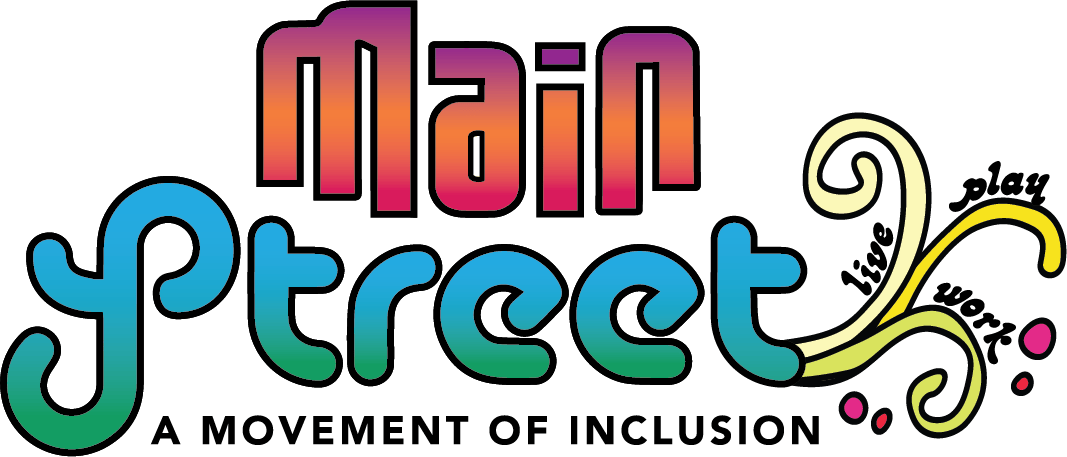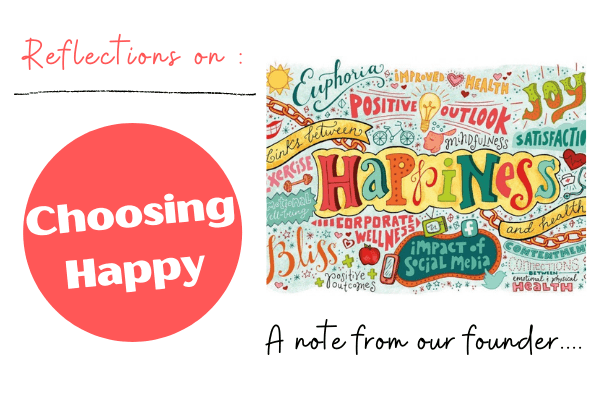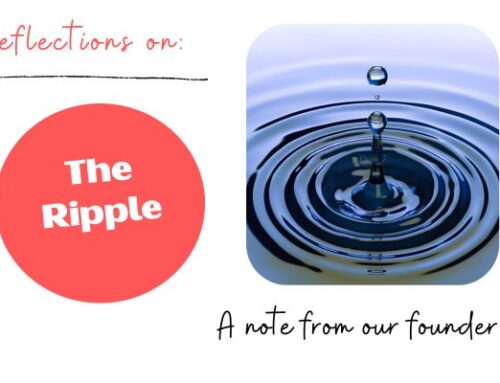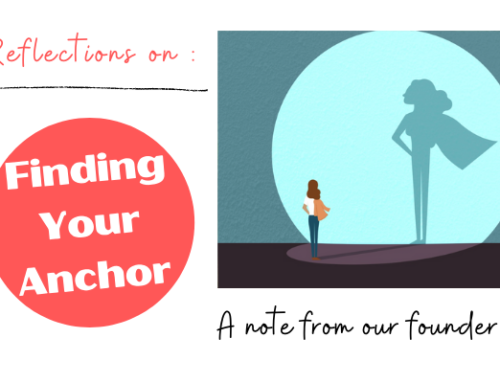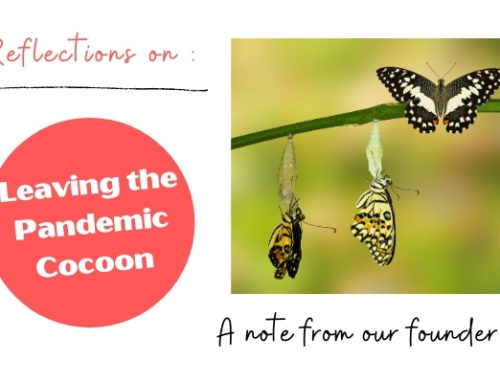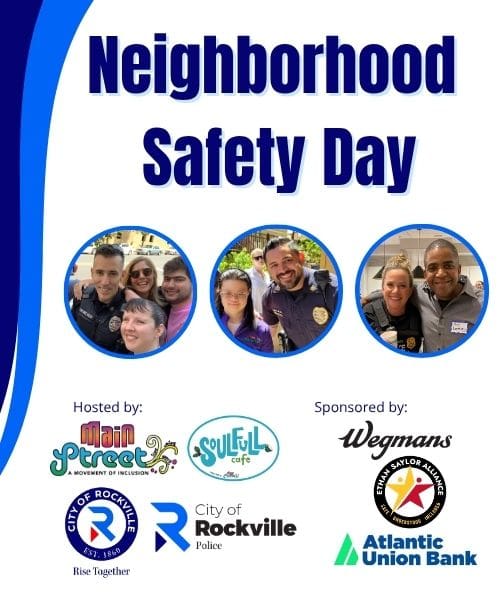Dear Main Street Community,
When I was 5 years old, my mother always told me that happiness was the key to life. When I went to school, they asked me what I wanted to be when I grew up. I wrote down “happy”. They told me I didn’t understand the assignment, and I told them they didn’t understand life. -John Lennon
Everyone seeks happiness. We all want to know the formula for being happy. With all the craziness and pain we see in the world today, it seems harder and harder to find our happy. We are still living in a pandemic and reeling from the toll it has taken. Many have lost their anchors. Our youth and young adults are struggling like never before, our social media feeds are blowing up and images of war and violence in Ukraine and elsewhere are etched heavily on our hearts. Our cognitive bandwidth is consistently challenged, which leads to exhaustion and depletion. With all of these challenging and painful undercurrents, can we find our happy? In the big picture, I believe we can, but not without some insight, effort and acceptance of the difficult emotions that exist alongside happiness.
I have been a happiness seeker my whole life. For several years I have read many books and articles, listened to podcasts, sat in many therapists’ offices, used a gratitude journal and even taken a happiness course online through Yale University. I have concluded that happy can run in our blood (as it does mine) and it can be modeled in our home (as it did mine), but happiness is really about mindset and our default to happiness and/or positive thinking is absolutely a choice. For the most part, we choose our thoughts – they do not choose us. However, if we think we deserve happiness or we should feel happy all the time, we are surely going to be disappointed. If instead we understand that happiness comes in waves and stages and isn’t a constant but dynamic and ever changing, we have found a start to feeling happier. If we understand that happiness will take some effort and isn’t a given emotion to which we are entitled, we might be on a better path towards our joy.
Why do many of us go astray when thinking about happiness or feeling happy? My understanding is that when we are happy, the chemical dopamine is released in our bloodstream bringing a feeling of elation, a feeling of euphoria and, like any great feeling, we want more of it once we have it. It is addicting. Many begin to question and even lament when we don’t feel this way. Why aren’t we happy right now? Some go deeper and explore low feelings that might include sadness, anxiety, anger or other negative emotions. I recently read Mark Manson’s book The Subtle Art of Not Giving a F*ck and my takeaway is this: we need to feel the negative emotions and make room for them to live side by side with our positive emotions. Negative emotions can and do exist alongside joy and happiness. Mark reminds us to live in the ordinary, maybe even be ordinary, stop comparing our lives to others and stop searching for what we think happiness will be – fame, fortune, talent. Happiness can and might be right in front of us, and if we take our heads out of our phones, pay attention and express gratitude for our own lives, our loved ones and our connections to them, who knows, we might just find it!
Last week was a big week in my life. Three things happened that allowed me to think deeply and feel true elation. To begin with, I attended the documentary The Stories of Us created by a dear friend and incredibly talented movie producer. Much of the film is shot around her family’s Thanksgiving table in 2008 highlighting their Jewish American family, their story. I watched in awe listening to stories of origin, hilarious accounts of first dates and family memories. This family, just like all others, experienced the ups and downs of life. They share love, joy, hardship and pain. Even 30 years after a tragic family event, you could feel their pain and their deep love that helped them through. I felt connection and nourishment as I delightfully relished every word. Not only did I feel my own family, our pain, our heritage, our story, but I also felt our shared love and deep connection to one another. The range of emotion I felt during the film and after was a blessing. The film reminds me, just as Mark Manson’s book does, of two important things. Deeply connecting with those we love is essential and feeling and acknowledging difficult emotions can and will help move through these feelings to ultimately allow us to find joy.
The following evening, I was invited to an event at The Don Bosco Cristo Rey School for a presentation by Father Greg Boyle, author of Tattoos on the Heart. Father Boyle witnessed the devastating effects of gang violence as the pastor of one of the poorest Catholic parishes in Los Angeles and he went on to found Homeboy Industries, which employs and trains former gang members. Listening to him and his stories was mesmerizing. His authenticity and shared history with his “homies”, those who have experienced deep and profound hardships and pain, have brought meaning to his life. His connection to people, his ability to really see and cherish people and his passion for community permeated the room and left me again feeling full of inspiration, hope and joy.
By the end of the busy week, this feeling of meaningful connection and purpose was running deep within my body and mind. And the timing was quite impeccable as my husband, Scott, and I had the luxury of soul sharing over the weekend. You see, both of us have been so busy finding our purpose, so busy with jobs, lives and friends, that we had forgotten that we are each other’s purpose. We neglected the importance of connecting regularly and actively listening to each other. Perhaps we forgot to savor the very beautiful connection we have, and our discussion was a reminder of why it is important to actively listen, deeply connect and find our happy together.
My takeaway from this week is twofold. First, I might not find my happy in each and every day. Some days, and even some seasons, are meant for sadness, for pain, for anger and I need to feel these feelings, acknowledge them and move through them in a therapeutic way. Sometimes these feelings can lead to positive actions – perhaps to show more care for myself and others, to heal relationships and to do what I can to promote empathy, kindness and justice in a hurting world. It’s important to set the mental expectation that happiness might not be felt in every moment, every moment doesn’t and shouldn’t be extraordinary and that doesn’t mean you don’t have a happy life. It means you are human experiencing the range of necessary human emotions.
My second takeaway from this week is the importance of creating a space for connections with those you love – space to really see them, listen to them and cherish them. (Thank you, Father Boyle for that word!) Avoid the noise, put your electronics down and savor these relationships, savor the ordinary moments.
At the end of the day, deep connection and love just might happen over a cup of coffee with your partner in the morning – and these ordinary, everyday moments are ones to feel and cherish—as they just might be how you find your happy.
If you are searching for your happy or want to learn more, here are some suggestions:
- Join us for our evening of gratitude on April 28th with Frederic Terral, founder of Pockitudes ™, which are pocket-sized mindfulness and gratitude journals.
- Join us for Monday Night Meditations at 7pm with the Bhante from the Buddha Meditation Center of Washington, DC. We practice three meditations per session: Breathing, Letting Go and Loving-Kindness.
- Read books that inspire such as Father Greg Boyle’s Tattoos on the Heart.
- Explore meditation and mindfulness with resources from Ten Percent Happier.
- For the formula of Happiness, Read The Happiness Equation.
- Learn about savoring the moment in this Joy Lab Podcast.
- See what makes you tick if you are unsure with 16 Personalities.
- Practice mindfulness, gratitude, self-compassion, forgiveness and kindness with help from Happier Human Podcasts.
With Love and Light,
Jillian
